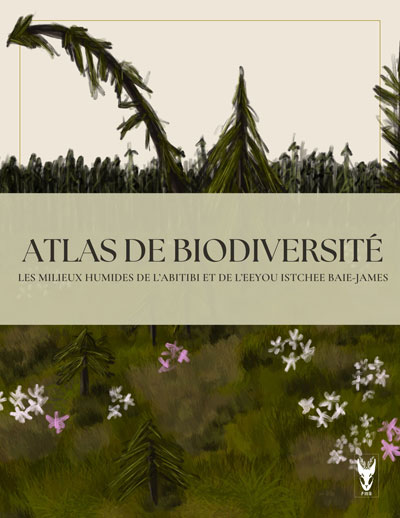Mahbubul Alam
Postdoctorat
Urban forestry ecosystem services
Université Laval
Codirecteur: Christian Messier
Interests and Projects
I am interested in ecosystem services and natural capital in general. I aim to understand how ecosystem services can be measured, how they can be modeled given a set to driver-pressure scenario and how policies can benefit from measurement and modeling of ecosystem services.
The science of ecosystem services is still in its infancy and, unsurprisingly, there are many important research questions to be answered. One such question is how do we link ecosystem structure with ecosystem function and ecosystem services and how ecosystem services can be quantified in a meaningful way so as to know how services are generated and how they change spatially and temporally. As an attempt to answer this question I am currently driving the idea of developing an index, which we call Ecosystem Services Index (ESI), a single numerical value, being developed through a set of indicators. It will serve as a yardstick to measure status and spatio-temporal changes in ecosystem services. It will be unambiguous and easy to use by general public and policy makers. ESI will help gauge the performance of ecosystems in terms of ecosystem service provisioning. More on this exiting project is coming soon.......stay tuned.
In another ongoing project I am studying the ecosystem services in urban forestry context. Using a spatially explicit GIS-based model called InVEST along with econometric models I am trying to understand how ecosystem services has changed over the last few decades and what is the likely future scenario of ecosystem service provisioning given the historical and current trend of land use land cover change in a region north-east of Montreal.
In a recently completed project I studied ecosystem services of agroforestry and the goal was to see if agroforestry generates more public benefits than conventional agriculture. We found that agriculture generate products which are private benefits of the farmers, but these benefits come at the expense of societal costs in terms of soil erosion, water quality degradation environmental pollution and so on. On the other hand agroforestry reduces private benefits since some space for agricultural crops has to give up for tree plantations, but it produces much more societal benefits than conventional agriculture. The results showed that farmer gain about 740$/ha/year by cultivating mono-crops, but society gains about 3000$ worth of ecosystem services through agroforestry! The recommendation was that since farmer looses some private benefits, there should be a government program of some kind to compensate for the losses and encourage them to adopt agoforestry in some of their crop fields.
Education
2011 PhD in Forest Policy and Economics, Ehime University, Matsuyama, Japan
2008 M.S., Forest Science, Kochi University, Japan
2009 Certificate, University of Freiburg, Germany
2005 B.S., Forestry, Shahjalal University of Science and Technology, Sylhet, Bangladesh
Awards, Fellowships and Honors
2011 Ehime University President Award
2011 JSPS Postdoctoral Fellowship for Foreign Researchers, Kochi University (declined)
2011 FQRNT Postdoctoral Fellowship, Laval University, Quebec City
2010 IUFRO Student Award for Excellence in Forest Science
2007 FAO Young Professional Award, FAO Regional Asia-Pacific Office, Bangkok
2007 Summer Intern, International Global Environmental Strategies (declined)
2006 Japanese Government Scholarship (MEXT) for Masters and PhD Studies
Research Projects
• (2012~ ). Urban forestry ecosystem services. PI: Christian Messier
• (2011-2013). Contribution of multifunctional agroforestry in adaptation of agriculture to climate change. OURANOS/FQRNT. PI: Alain Olivier
• (2011-2012). Development of a methodological guide for economic evaluation of non-market goods and services. OURANOS. PI: Jean-Pierre Revéret
• (2010-2011). Homestead agroforestry in Bangladesh: socio-economic role and in-situ conservation of biodiversity. International Foundation for Science, Stockholm. (PI)
• (2009-2011). Improved food security and adaptation to climate change through smallholder agroforestry in Bangladesh. Toyota Foundation, Tokyo. (D09-R-0031). (PI)
• (2010-2011). Restoration and conservation of cultural-ecological landscapes in Japan and Southeast Asia. Kochi University (Fac. of Agriculture) and Ehime University (United Grad. School of Agriculture), Japan.
Publications
Alam M, Olivier A, Raquette A, Revéret J-P. Valuing carbon sequestration of Temperate Tree-based Intercropping Systems in Quebec (Submitted: Canadian Journal of Agricultural Economics)
Alam et al Ecosystem services of temperate tree-based intercropping systems: quantification, valuation and tradeoffs (InPrep) Spatio-temporal landscape dynamics and the provision of ecosystem services in Lanaudière, Quebec (InPrep)
Peer-reviewed Articles
1. Alam M (In Press). Valuation of Tangible Benefits of a Homestead Agroforestry System: A Case Study. Human Ecology. DOI 10.1007/s10745-012-9512-5
2. Alam M and Sarker S.K (2011). Homestead Agroforestry in Bangladesh: Dynamics of Stand Structure and Biodiversity. Sustainable Forestry. Vol 36(6):584-599
3. Alam M and Furukawa Y (2011). Farmers’ traditional management of trees outside forests (TOF) in Bangladesh. Japanese Journal of Forest Planning. Vol 16:45-51.
4. Alam M, Furukawa Y and Mika M. (2010). Perceptions, preferences, and attitude of farmers towards homegarden farming systems in Bangladesh. Small-scale Forestry, Vol. 9(2): 213-226.
5. Alam M. (2010) Tropical Homegardens in Bangladesh: Characteristics and Sustainability. In Eric Lichtfouse (ed.), Alternative Farming Systems, Biotechnology, Drought Stress and Ecological Fertilisation. Sustainable Agriculture Reviews 6: 245-262. Springer, Dordrecht.
6. Alam M (2009). Evolution of Forest Policies in Bangladesh: A Critical Analysis. International Journal of Social Forestry. Vol 2(2): 149-166.
7. Alam M, Furukawa Y and Harada K (2009). Agroforestry as a sustainable landuse option in degraded tropical forests: A study from Bangladesh. Environment, Development and Sustainability. DOI 10.1007/s10668-009-9186-3.
8. Alam M, Furukawa Y, Sarker SK and Ahmed R (2008). Sustainability of Sal (Shorea robusta) forest in Bangladesh: past, present and future actions. International Forestry Review. Vol. 10(1): 29-37.
9. Chowdhury MQ, Rashid AZM Manzoor, Newaz MS and Alam M (2007) Assessment of physical properties of Jhau (Casuarina equisetifolia) from southeastern region of Bangladesh. Australian Forestry. Vol. 70 (1): 33-36.
10. Rahman MM, Furukawa Y, Kawata I, Rahman MM and Alam M (2006). Role of Homestead Forests in Household Economy and Factors Affecting Forest Production: A Case Study in Southwest Bangladesh. Journal of Forest Research. 11:89-97.
11. Chowdhury MQ, Rashid AZM Manzoor, Alam M and Khan NA (2005). Selected dynamics of human interference and impact on the Reed Forests of the Sylhet region. International Journal of Biodiversity Science and Management. Vol. 1: 58-64.
12. Chowdhury MQ, Shams MI and Alam M (2005). Effects of age and height variation on physical properties of mangium (Acacia mangium Wild) wood. Australian Forestry. Vol. 68 (1):17-19.
Non-peer-reviewed contributions
1. Guide to Climate Change: A complete Guide for Young People (Contributing author; Forthcoming from FAO)
2. Alam M and Furukawa Y (2010). Agroforestry homegardens in rural landscapes of Bangladesh. In C. Belair, K. Ichikawa, B.Y.L. Wong and K.J. Mulongoy (eds.), Sustainable Use of Biological Diversity in Socio-ecological Production Landscapes. Background to the ‘Satoyama’ Initiative for the benefit of biodiversity and human well-being: 120-124. Secretariat of the Convention of Biological Diversity, Montreal.
3. The Future of Forest Use and Management in Asia and the Pacific: Trend of Change in the Next 20 Years. RAP publication 2009/03, Food and Agriculture Organization of the United Nations (FAO), Bangkok regional office, pp581-584.
4. Hill Forest Biodiversity in Bangladesh: Status, Conservation, and Threats. ICIMOD-Asia Pacific Mountain Courier, Vol 10(1), June 2009.
5. Ethnobotany and Traditional Management of Drought Tolerant Tree Species in Homestead Forests of Bangladesh. Ethnobotanical Leaflets 12: 1168-73
6. Betel-leaf Farming System in the Hill Forest of Bangladesh. Low External Input Sustainable Agriculture (LEISA Magazine) Vol 25(1), March 2009, 26p.
Books
1. "A Premier on Conservation Biology [adaptation]" with Richard B. Primack (Sinauer Associates, Massachusetts) [forthcoming]
Articles in Preparation
1. Alam et al. Valuing carbon sequestration of Temperate Tree-based Intercropping Systems in Quebec (intended journal: Ecological Economics)
Conference presentations
1. Alam M (2010). Biodiversity in agroforestry homegardens: A study across various agroecological zones in Bangladesh. XXIII IUFRO World Forestry Congress, 22-28 August, Seoul, Korea.
2. Alam M (2009). Climate change in Bangladesh: Can homestead agroforestry mitigate? Paper accepted for oral presentation in the 2nd World Congress of Agroforestry held in 23-28 August 2009 in Nairobi, Kenya.
3. Alam M and Furukawa Y (2009). Biodiversity and management of homestead agroforestry systems in Bangladesh. Paper presented at the “Japanese Forest Society Annual Conference 2009” held on 25-29 March in Kyoto University, Japan.
4. Alam M (2008). Bangladesh forestry and implications for future research. Paper presented in the “International Seminar on the overseas training course for field science” held on 23 October 2008 in Kochi, organized by Kochi University, Japan.
5. Alam M, Furukawa Y and Kawata I (2008). Climate change in Bangladesh: The role of agroforestry in mitigation of and adaptation to desertification. Paper presented in the “International Conference on the Role of Forests in Climate Stabilization: Research-Innovation-Investment-Capacity building” held on 4-7 October 2008, organized by Federal Forestry Agency, FAO, WB and IUFRO in Saint Petersburg, Russia.
6. Alam M (2008). Climate variability and change in northwestern Bangladesh: Role of smallholder agroforestry in adaptation to desertification. Paper presented in the "International Conference on Adaptation of Forest and Forest Management to Changing Climate with Emphasis on Forest Health" held on 25-28 August 2008, organized by IUFRO, SLU and FAO in Umea, Sweden.
7. Alam M (2007). The future of forest use and management in Asia and the Pacific: Trend of change in the next 20 years. Winning paper of Young Professionals Essay Competition in the “International Conference on Future of Forests in Asia-Pacific Region towards 2020” held on 16-18 October 2007, organized by FAO-RAP and co-organizers in Chiang Mai, Thailand.
8. Chowdhury MQ, Rashid AZM Manzoor and Alam M (2004). Socio-economic impacts on biodiversity management in reed forests: A case study from Sylhet region, Bangladesh. Paper presented in “3rd Annual Conference of Biodiversity Research Group of Bangladesh”, held on 7th January 2004, Dhaka.
Teaching
Social Forestry (Fall 2009; 1.5hx6 classes), Kochi University
Landscape Ecology (Fall 2009; 1.5h x 3 classes), Kochi University
Conservation Biology (Fall 2010; 1.5h x 12 classes), Kochi University
Professional Services
Dy. Coordinator: IUFRO Working Party on Community Forestry (IUFRO unit 9.05.06) (2010 to present)
Editorial Committee: Journal of Agriculture, Food Systems and Community Development
Manuscripts reviewed for: New Forests; Journal of Forestry Research; Tropical Conservation Science; Small-scale Forestry; International Forestry Review; Human Ecology; International Journal of Environment; Conservation and Society; Environment, Development and Sustainability; Natural Resources Forum; Int. J. of Sustainable Agricultural Technology; J. of Subtropical Agricultural Research and Development; Sustainable Agriculture Review; Tropics; Agroforestry Systems
Memberships: Society of American Foresters; Association for Environmental Studies and Sciences; International Association of Society and Natural Resources; International Society of Ethnobiology; Association for Tropical Biology and Conservation; International Union of Forestry Research Organizations (IUFRO); Association for Temperate Agroforestry; Japanese Forest Economics Society
Others:
International Program Committee Member, International Conference of Environmental Aspects of Bangladesh, September 10-11, Fukuoka, Japan
Bangladesh Focal Point for IUCN’s ‘Countdown2010 Initiative’ for the International Year of Biodiversity, 2010.










